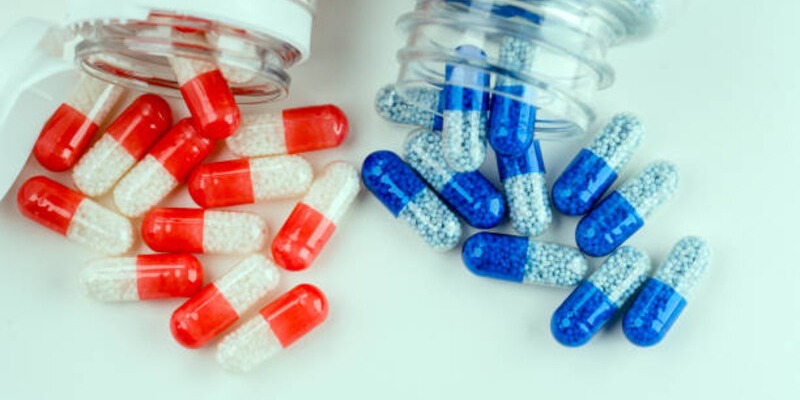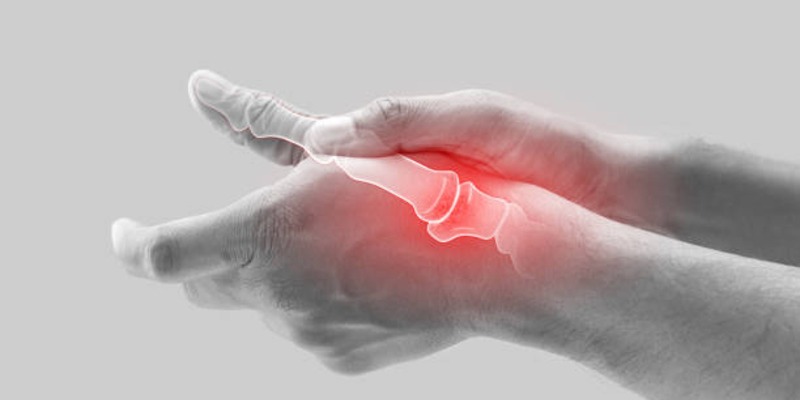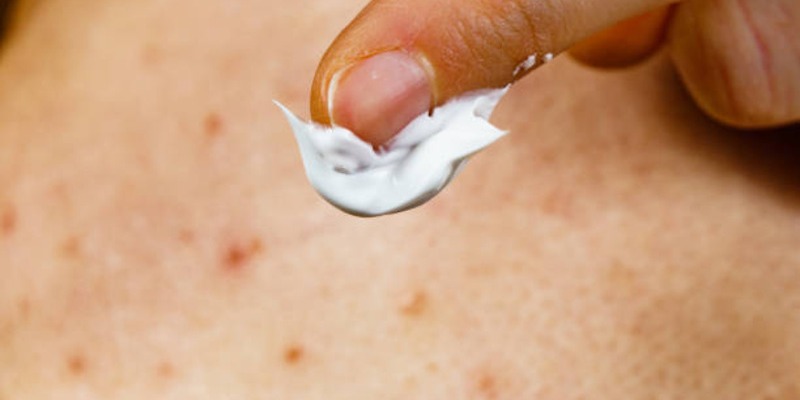Do you ever have unexplained bumps or patches on your skin that come up out of nowhere? Unexpected rashes and other symptoms can worry us when we don't know the cause. Skin problems like an itchy, uncomfortable rash can be tough to treat if the origin is not known. In this blog post, we'll give you more insight into what might be causing a skin rash and how to effectively treat it so that you can avoid the further irritation these occurrences can bring. Read on for helpful information about common causes of skin irritations as well as recommended remedies!
An Overview of Skin Rashes:
A skin rash can appear on any part of the body and can take on many forms. It is an inflammation or irritation of the skin, and it can be caused by a variety of factors, such as allergies, infections, or even stress. There are many types of skin rashes, including eczema, hives, psoriasis, and dermatitis, to name a few.
Each type presents differently and requires unique treatments. Knowing the signs and symptoms of a skin rash can be instrumental in identifying the type and seeking the appropriate medical care. Some of the most common signs to look out for are redness, itching, swelling, and dryness. If you are experiencing any of these symptoms, seek the help of a healthcare professional who can provide an accurate diagnosis and recommend the optimal treatment plan.
Possible Causes of Skin Rash:
Skin rash can be caused by various factors, including but not limited to allergy reactions, exposure to chemicals or other irritants, certain medical conditions, and treatments. Skin rash can make an individual feel uncomfortable, itchy, and irritated, prompting them to seek appropriate treatment. Allergic reactions can occur when the immune system overreacts to certain substances such as
- Pollen
- Pet dander
- Food
Exposure to chemicals or irritants such as makeup, soaps, metals, or plants can result in contact dermatitis, resulting in a rash where the skin comes into contact with the respective irritant. Skin rash can also be caused by medical conditions, such as eczema, psoriasis, and autoimmune disorders. In some cases, certain medications and treatments can also cause skin rash as a side effect.
Diagnosing and Treating Skin Rashes:
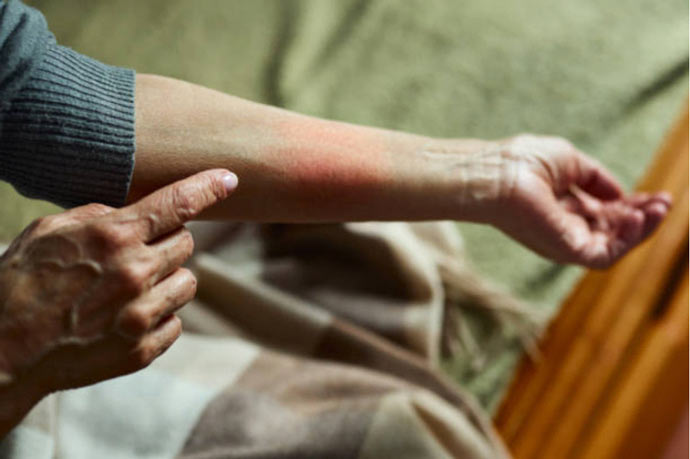
Skin rashes can be frustrating to deal with, especially when they persist despite home treatment. While some rashes may not require treatment, others could be an indication of an underlying health condition that requires medical attention. Knowing when to consult a doctor is crucial.
Dermatologists or primary care physicians can use various methods of diagnosis, including skin biopsies and allergy tests, to determine the cause of a rash. Once diagnosed, appropriate treatment options can be prescribed.
At home, over-the-counter antihistamines and hydrocortisone creams can provide relief for mild rashes. Severe rashes or those accompanied by fever or other concerning symptoms warrant a visit to the doctor. Early detection and treatment can prevent further complications and promote a speedy recovery.
When to Seek Medical Attention for Skin Rashes?
While some skin rashes are short-lived and may not require medical attention, others can be a sign of an underlying health condition that needs immediate treatment. It is essential to seek medical attention if you experience any of the following:
- Fever
- Difficulty breathing or swallowing
- Pus or drainage from the rash
- Painful blisters or sores
- Worsening symptoms despite home treatment
- Rashes that cover a large area of the body or do not improve after a few days
Methods for Diagnosing Skin Rashes:
If you are experiencing a skin rash, it is vital to seek medical attention for an accurate diagnosis. Dermatologists or primary care physicians use various methods to determine the cause of a rash. These methods include:
Physical examination: A doctor will examine your skin closely and ask about any accompanying symptoms.
Skin biopsy: If necessary, a small sample of skin may be taken for testing to determine the cause of the rash.
Allergy testing: In cases where an allergy is suspected, a doctor may perform skin or blood tests to identify specific allergens.
Common Treatments for Skin Rashes:
The treatment for a skin rash will depend on its cause. Some common treatment options include:
Topical creams or ointments: These can help soothe the rash and reduce inflammation.
Oral medication: In cases of severe rashes, oral medications such as antihistamines, corticosteroids, or antibiotics may be prescribed.
Light therapy: This treatment involves exposing the skin to controlled amounts of natural or artificial light.
Lifestyle changes: Making certain lifestyle adjustments, such as avoiding irritants and allergens, can also help alleviate symptoms and prevent future rashes.
Over-the-Counter Solutions for Skin Rashes:
In addition to prescribed treatments, there are also over-the-counter solutions that can provide relief for mild skin rashes. These include:
- Antihistamines: These oral medications can help reduce itching and swelling.
- Hydrocortisone cream: This topical cream can help soothe inflammation and itching.
- Calamine lotion: This cooling solution can be applied topically to relieve itching and dryness.
- Colloidal oatmeal baths: Adding colloidal oatmeal to a warm bath can help soothe irritated skin.
Dealing with Persistent Skin Rashes:
In some cases, skin rashes may persist despite home treatment or prescribed medications. This can be frustrating and may require further medical attention. If you are experiencing persistent skin rashes, consider the following tips:
- Keep track of your symptoms: Note down any changes in your rash, such as size, color, or appearance.
- Avoid irritants: Be mindful of potential irritants that may be causing or exacerbating your rash, such as certain fabrics or skin products.
- Practice good hygiene: Keep the affected area clean and dry to prevent infection.
- Stay hydrated: Drinking plenty of water can help keep your skin hydrated and promote healing.
Natural Remedies for Skin Rash:
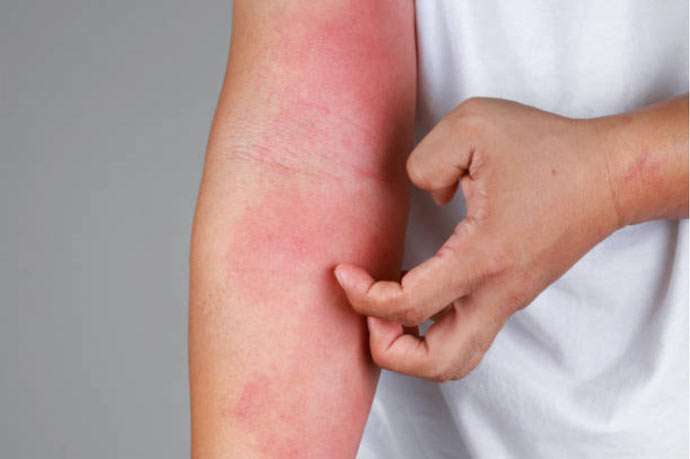
If you are dealing with a skin rash, trying out natural remedies can be an effective way to minimize inflammation and irritation. Herbal remedies, in particular, are known for their anti-inflammatory and soothing properties. For instance, chamomile tea can be used as a topical remedy to reduce redness and swelling.
Aloe vera is another popular plant remedy that can help soothe and moisturize irritated skin. Applying a cold compress of calendula tea can also help alleviate itching caused by a rash. Turmeric, a spice often found in the kitchen, can also be used topically to reduce inflammation and calm an irritated rash.
Effective Home Remedies for Skin Rash:
Skin rashes are a common problem that affects individuals of all ages. While over-the-counter medications can provide relief, natural remedies using ingredients found in your home can also be effective. Aloe vera, known for its anti-inflammatory and soothing properties, can be applied topically to the affected area. Oatmeal baths can also provide relief by reducing itching and inflammation.
A cold compress can be applied to relieve symptoms of redness and swelling. Tea tree oil, known for its antifungal and antibacterial properties, can be diluted and applied to the affected area to help with skin irritation.
Conclusion:
From the range of skin rashes from mild to severe, being informed on their varying signs and symptoms is crucial to understanding and caring for your skin. Whether it be lifestyle changes, medical treatments or natural remedies, taking the appropriate steps to combat your rash can lead to long-lasting relief. It’s important to remember that prevention is also key – avoiding potential triggers such as allergens or environmental irritants will help reduce your risk of developing a skin rash. Remember that you’re not alone in this experience – if you feel unsure about any step of the way, don’t hesitate to reach out to your doctor or dermatologist and ask any questions or express any concerns about how best to care and treat your unique case.

